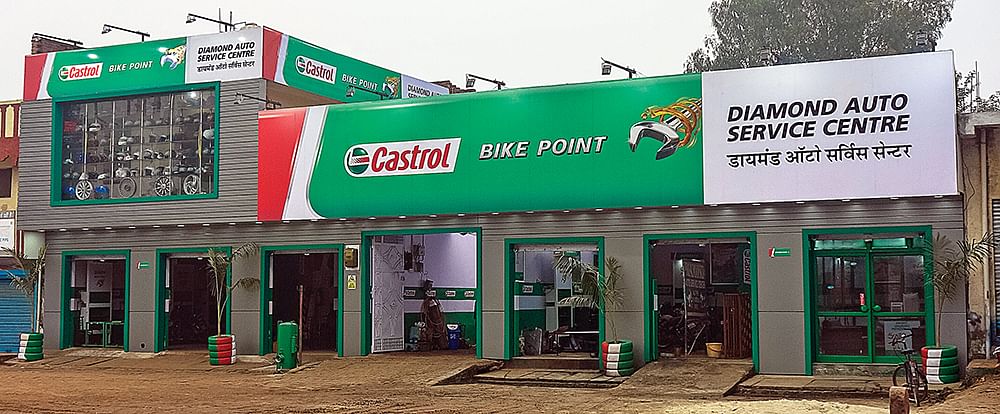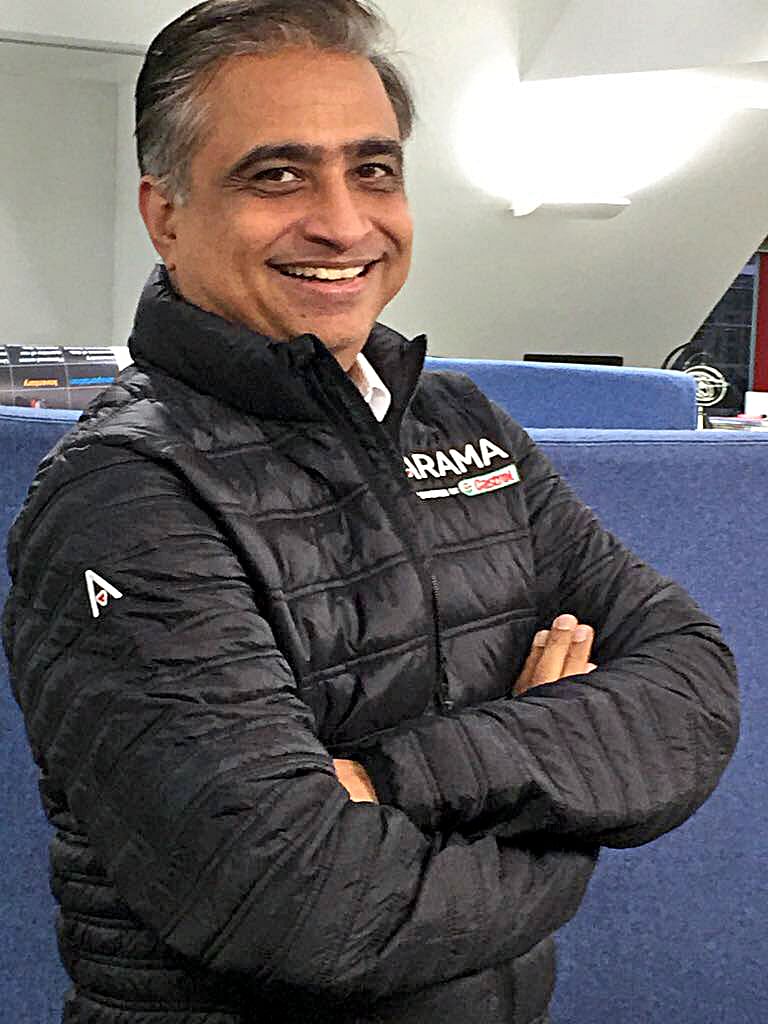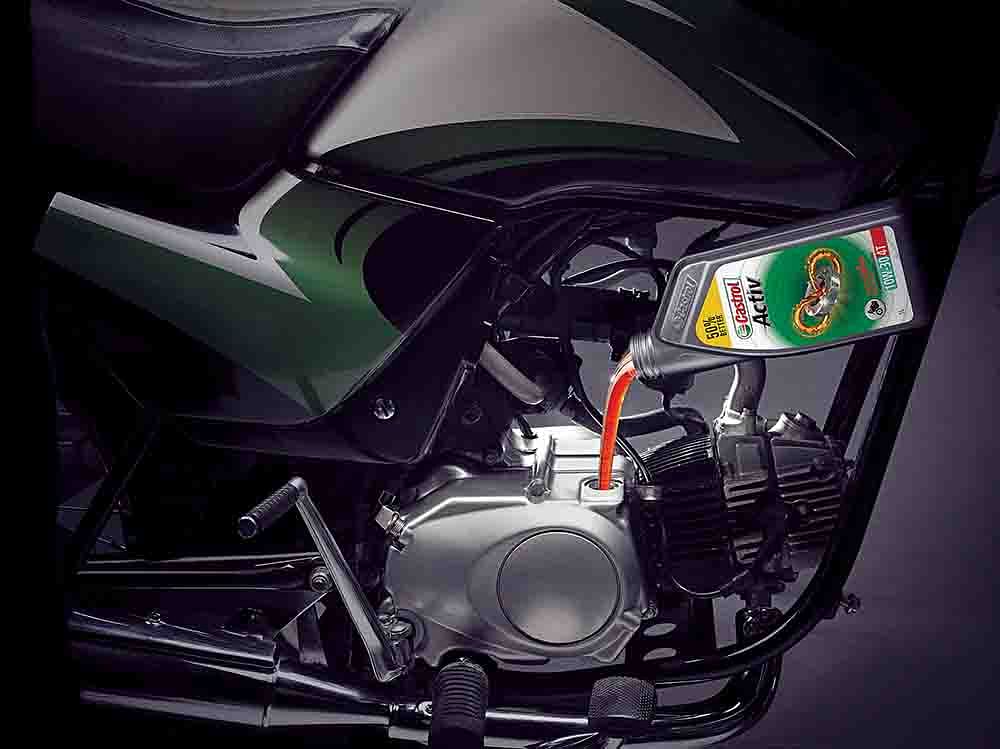Peak for lubricant industry still 15 years away: Castrol
A S Ramchander, Vice-President-Global Marketing, Castrol, speaks to Autocar Professional.
The global lubricant brand doesn't see business getting affected by electric mobility anytime soon. However, to carry forward its success story in the new disruptive business world, the nearly 120-year-old company gets ready to draft new strategies.
In his career of over 30 years so far, A S Ramchander, global lubricant company Castrol's chief marketing officer, has seen a lot of developments in the business world. But none matches the kind of changes that are taking place now in the world, especially in the automotive sector. "This is a once-in-a-lifetime type of change. It is not normal disruption," Ramchander tells Autocar Professional. That necessitates business strategies like never before, more so for large organisations like Castrol to realign themselves with the new environment and continue the success stories.

Castrol has a network of 2,000 distributors, 150,000 independent workshops and a team of 15,000 sales people around the world.
The automotive industry is witnessing some major disruptions or megatrends. Electrification is a leading one. In an era of electric mobility, where the battery is the fuel, could Castrol venture into the renewable energy space? "I can't comment on that one because that is a specific sort of idea, but yes we are looking at new businesses, business models, new solutions," says Ramchander. The new steps will be taken mainly to reduce Castrol's dependence on motor-oil only. It's not that Ramchander doesn't want to speak about Castrol's new businesses. He can't because Castrol is in the process of identifying the market spaces which it should enter and participate. In a year or so, he expects to be able to share at least some of the new plans. "The year 2019-2020 onwards, you will be able to start seeing some elements of the strategy coming out from the purdah." And they would be indicators of the long-term direction of Castrol.
A Collaborative Approach
As the global business environment changes, there will also be a significant change in the way of doing business. Of late, there is a rise in the number of collaborations in the automotive industry. There are instances of even competitors coming together for mutual gains. The days of large investments with a long industry lifecycle may be over. Even what Castrol or any other organisation enjoyed for decades in their respective sectors solely for their own gains may not happen again. "In the future, product, brand and industry lifecycles are going to get compressed. Therefore, the fastest and smartest way to do it is by collaborating. We are very keen to collaborate with companies, individuals and organisations," says Ramchander. What Castrol is looking for in its prospective partners are certain 'hygiene factors' like ethics and compliance, and other "basic things" like innovative capability, speed to market and customer focus. Ramchander says, "We will be looking for people who have the technology, digital and engineering capabilities so that we have complementing skill sets coming together to create customer offers which are very powerful in the markets."
Impact of electric mobility
One of the sectors that's set to see a significant adverse impact due to the growing wave of electric mobility is automotive lubricants. With many countries around the world setting policy deadlines for the transition to electric mobility, and India also making its intent quite clear, some may say that a lubricant company should brace itself for some tough times. But Ramchander is not a worried man yet. That's because the global electric mobility industry is not expected to reach the critical scale level till 2025 or 2030. Even then, only a part of the conventional automotive industry's volumes will go electric.

'When it comes to motor oils and transmission fluids, there is going to be very rapid movement in India towards higher specifications.'
For Ramchander, the overall car parc is as attractive as the sales of conventional vehicles because aftermarket is a very big play for lubricants and some other consumables in a vehicle. He doesn't expect any "demand compression for quality lubrication" for the next 15 years. That's when the industry is expected to peak. In 30-40 years from now, the demand for lubricants could go down by a whopping 75 percent. Ramchander is not bothering much about that now. "As a lubes marketer, I am looking at the situation where I am much more focused on delivering solutions for my customers and consumers in the next 2,5,10,15 years," he says.
As much as electric mobility is catching everyone's fancy, there are also efforts going on to develop other clean and efficient propulsion technologies. Ramchander believes that there's no one clear winner yet, but electrification has "caught the imagination" of the people because it is easy to understand. "But finally when it comes down to all technologies having fully developed, then the consumer will have a choice – do I go for lack of noise, do I go for power/convenience/comfort/economy. Whichever option, we will have a combination of technologies that provide the best consumer value proposition. That's one axis. The other axis is legislation. If the legislation says only electric, then there's no choice. A combination of legislation and consumer preferences will drive demand," he says.
Role of emerging markets
Mass adoption of newer technologies is still some time away. Till that time, lubricants will continue to evolve qualitatively. In this regard, Castrol expects a major shift or premiumisation of lubricants in emerging markets like India. A key driver for that is the growing trend of OEMs using the same vehicle platforms across the world which drives the need for usage of the same type of lubricant. As that happens, Castrol and its peers would reap the benefits. Much like the automobile industry, premiumisation is likely to be the next big trend in the automobile lubes market. "It's not going to be like the transition period of 20 years for the shift from manual transmission to automatic transmission in the USA or Europe. In India, it (mass adoption of premium lubes) will be in 2-3 years. So, the whole lifecycle will get compressed and the product upgradation and quality will zoom through a development phase in the next 3-4 years," says Ramchander.

The company is banking on its domestic power brand Castrol Activ and the other power brands Edge, Magnatec and GTX for growth.
Premiumisation is one of the growth strategies for Castrol. The others are differentiated technologies and strong customer relationship. A network of 2,000 distributors, 150,000 independent workshops and a team of 15,000 sales people around the world are engaged in sustaining and developing Castrol's bonds with customers.
Castrol leads the Indian automobile lubricant market with a market share of around 20 percent (YTD October '17) in a market of over 30 established players and some smaller players, as per an AC Nielsen report. Since the past 20 years, India has been the company's No. 3 market in terms of volume and profits. China and USA are Castrol's largest and second largest markets.
Ramchander wouldn't give away the contribution of the top three markets to Castrol's overall revenue but says that the company's global business is "very well distributed" across the world. Castrol sells in over 100 markets and has operations in over 40 countries. In around 17 countries, Ramchander claims, Castrol is either the leader or number two player.
BANKING ON DOMESTIC POWER BRANDS
As the automobile industry in India matures, the domestic lubricant industry is also getting increasingly competitive. Castrol is banking on its domestic power brand Castrol Activ and the other power brands Edge, Magnatec and GTX for growth. Ramchander admits that some of Castrol's peers may be stronger than it in one parameter or another, but says that Castrol leads because of its strong delivery of the combination of product, service and the communication. Castrol has seven global technological centres (one each in UK, Japan, China, two each in USA, Germany). In addition to these, there are country-specific deployment teams that support new product launches by adapting global formulations, identify new product development requirements.
A new analytical laboratory designed to carry out a unique type of analysis to support the global strategy and Castrol's local business priorities was inaugurated in December 2017. The new laboratory is co-located within Castrol's Silvassa plant and brings together the supply chain and technology teams, which help the company drive synergies between technology and manufacturing.
(This article was originally published in 1 February 2018 issue of Autocar Professional)
RELATED ARTICLES
Inside Mahindra Last Mile Mobility’s Rs 500 Crore Modular Platform Strategy
Mahindra Last Mile Mobility has launched the UDO, an electric three-wheeler built on a new Rs 500-crore modular platform...
How the India-EU Trade Deal Could Quietly Reshape the Auto Industry
While immediate price relief for the buyer is unlikely, the India-EU FTA will help reshape long-term industry strategy, ...
Policy, Protectionism and Pressure: Inside India’s Construction Equipment Downturn
India’s construction equipment sector faces a tough battle as it takes on cheaper imports from China and a slowdown in g...






 03 Apr 2018
03 Apr 2018
 35230 Views
35230 Views





 Shahkar Abidi
Shahkar Abidi


 Prerna Lidhoo
Prerna Lidhoo


